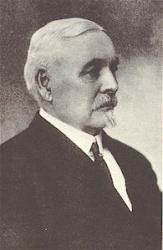
1819 - 1913 Person Name: Maude Author of "The City of Gold" in Songs of the Kingdom Maude, Mary Fawler, née Hooper, daughter of George Henry Hooper, of Stanmore, Middlesex, was married in 1841 to the late Joseph Maude, some time Vicar of Chirk, near Ruabon, and Hon. Canon of St. Asaph, who died in Feb. 1887. Mrs. Maude's hymns were published in her Twelve Letters on Confirmation, 1848, and in Memorials of Past Years, 1852 (privately printed). Her best known hymn, is "Thine for ever, God of love" (Confirmation). Concerning it Mrs. Maude says: --
"It was written in 1847 for my class in the Girls' Sunday School of St. Thomas, Newport, Isle of Wight, and published in 1848 at the beginning of a little book called ‘Twelve Letters on Confirmation,' by a Sunday School Teacher, and reprinted in the Memorials, 1852."
[S. MSS.]
The original is in 7 stanzas of 4 lines. It is usually abbreviated, and stanzas ii., iii. transposed, as in the Society for Promoting Christian Knowledge Church Hymns, 1871; the Hymnal Companion; Hymns Ancient & Modern, 1875, Thring's Collection, 1882, and most other hymnbooks. As a hymn for Confirmation its use is extensive. The omitted stanzas are:—
"Thine for ever in that day
When the world shall pass away:
When the trumpet note shall sound,
And the nations underground
"Shall the awful summons hear,
Which proclaims the judgment near.
Thine for ever.
'Neath Thy wings Hide and save us,
King of Kings."
-- John Julian, Dictionary of Hymnology (1907)
Mary Fawler Maude

